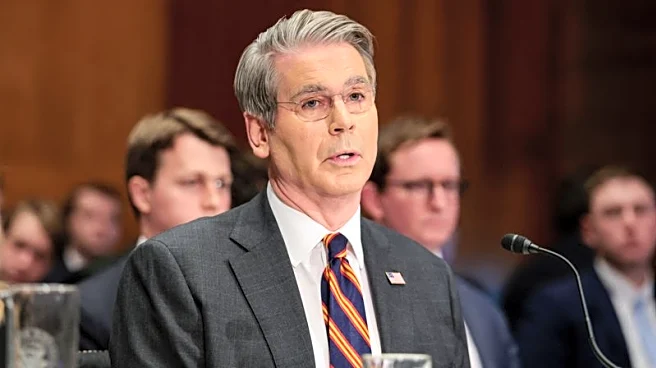What's Happening?
The International Monetary Fund (IMF) has issued a warning to banks and supervisors about liquidity risks in the $9.6 trillion foreign exchange (FX) market. The IMF's report emphasizes the need for financial institutions to hold adequate liquidity and capital buffers and conduct enhanced stress tests to prevent disruptions in the financial system. The report highlights the role of FX markets as conduits for risk transmission and cross-border spillovers, which remain underappreciated. The IMF also noted that following recent US tariff announcements, investors in some countries have reduced their US dollar holdings, underscoring the need to strengthen FX market resilience.
Why It's Important?
The IMF's warning is significant as it highlights potential vulnerabilities in the global financial system, particularly in the FX market. Banks with significant dollar exposure are at risk of funding shocks, which could lead to broader financial instability. The report suggests that strengthening central bank swap lines could enhance global FX liquidity backstops and reduce contagion risks. This development is crucial for financial institutions and policymakers as they navigate a shifting macro financial landscape and seek to maintain stability in the face of potential adverse shocks.
What's Next?
The IMF's call for enhanced stress testing and systemic risk monitoring may lead to increased regulatory scrutiny and adjustments in banks' risk management practices. Financial institutions might need to reassess their liquidity strategies and capital buffers to align with the IMF's recommendations. Additionally, the strengthening of central bank swap lines could be a focus for policymakers aiming to bolster global FX market resilience.
Beyond the Headlines
The IMF's report underscores the interconnectedness of global financial markets and the importance of international cooperation in managing systemic risks. The emphasis on FX market resilience reflects broader concerns about the impact of geopolitical tensions and economic policy shifts on global financial stability.











